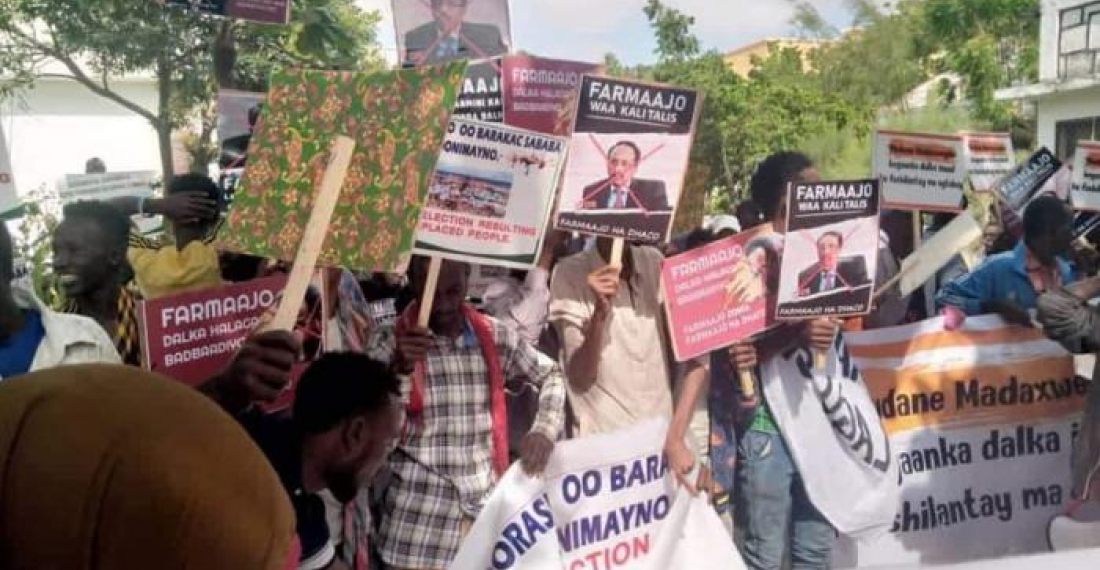At least six people were killed and eight others wounded on Tuesday in Somalia's capital, Mogadishu.
Clashes erupted between police forces who were dispersing protesters against the delay of the country's legislative elections. What triggered the clashes is still unclear.
"It started with sporadic gunshots just before and then it escalated into heavy gunfire. When I came out of the house the gunfire died down," said Mohamed Abdi, a resident of the neighbourhood.
Security forces had early Tuesday morning blocked all the major roads in the capital Mogadishu in a bid to stop a planned anti-government rally.
The protestors claim that President Mohamed Abdullahi Mohamed, also known as Farmaajo, is delaying the elections in a bid to aid his reelection in 2021. Disagreements over the composition of the electoral board prevented the vote from taking place this month.
The development came as Somalia severed ties with southern neighbour Kenya on Tuesday. Somalia has announced it is cutting diplomatic ties with neighbouring Kenya over what it said was Nairobi’s interference in its political affairs.
“Somalia calls back all its diplomats from Kenya and orders Kenyan diplomats to leave Somalia within seven days,” the state news agency quoted Somalia’s Information Minister Osman Dube as saying on Tuesday.
Dube said the government’s decision had come in response to “the constant political violation and Kenya’s open interference in Somalia’s independence. The minister did not provide specific details on the alleged interference.
The announcement comes as Kenya hosted the leadership of the internationally unrecognized republic of Somaliland on Monday which considers itself independent from Somalia. The two counties are also locked in a maritime border dispute.
Somalia also faces a threat from militant groups such as al-Shabaab, an al-Qaida-linked extremist group. On November 27, al-Shabaab claimed responsibility for a suicide bombing at an ice cream shop, on a busy road leading to the city's heavily-guarded airport.
Source: commonspace.eu with agencies.
Photo: Protesters in Mogadishu.






